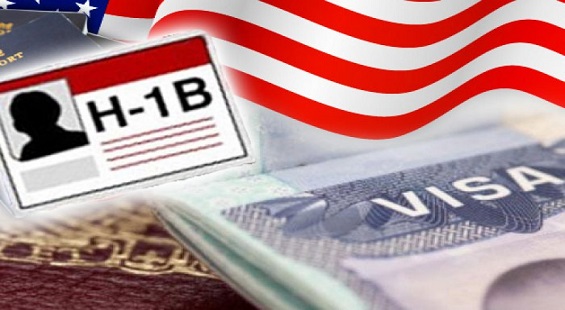 Move will bring major relief to Indian professionals who get bulk of visas for high skilled foreign workers
Move will bring major relief to Indian professionals who get bulk of visas for high skilled foreign workers
A presidential commission on Asian Americans and Pacific Islanders has unanimously approved a recommendation for the provision of stamping of H-1B visas for high skilled foreign workers inside the US.
If accepted by President Joe Biden, the move will bring major relief to Indian professionals, who currently get more than two thirds of 85,000 H-1B visas for foreign workers in speciality occupations issued annually.
Currently, foreign professionals are required to apply for a visa stamp at a US embassy or consulate or abroad before their H-1B status can be activated.
Read: Petition seeks H-1B visa stamping within US (May 23, 2022)
The recommendation for visa stamping within US was approved during a meeting Wednesday of President’s Advisory Commission on Asian Americans, Native Hawaiians, and Pacific Islanders streamed live by the White House.
“This is an issue of family separation and dignity of H-1B visa holders,” said Sonal Shah, Indian American Chief commissioner. “That’s an easy way to put fear into families”
“One of the comments I would make here is that I think this is overall in the commission’s thinking about dignity for people, and how do we make it easier and a dignified process and a dignified approach,” she said. “It’s one thing to have rules, it’s another to not hold the dignity of families and individuals.”
“As part of our immigration process, H-1B visa holders are given the opportunity to work in the United States live here and contribute to the growth of our economy, innovation and economic development,” said Ajay Jain Bhutoria, an Indian American member of the commission, who moved the recommendation.
H-1B visa holders, he told members of the commission, face problems and many a time even forced family separation during the renewal or when they travel overseas.
Read: 200,000 skilled Indians will likely die waiting for a green card (April 11, 2022)
“There are situations where a lot of people, whose parents have been in ICU or in critical condition or the death of a parent, but they could not travel back to the home country with the fear that if there is often delay in the visa appointments in the home countries,” he said.
“In India right now the waiting period is 844 days to get a visa appointment which is like two years or more. There’s a similar situation in Pakistan, Bangladesh and many other countries. China is much better right now. So, they cannot get an appointment and they cannot get stamping done and they get stuck,” said Bhaturia.
“What happens then, they potentially lose the job. Wife and kids are here separated and with no means to support themselves or many times spouses don’t drive. A lot of these kinds of situations create a disruption in their life while they were given the full opportunity to work here legally,” he argued.
“This recommendation is to request USCIS to allow the stamping in the US. Alternatively, USCIS should also consider providing advanced travel documents to these visa holders when they will travel out of the country with expired visa stamping so that they can re-enter the US without having to get re-stamping in their home countries,” Bhutoria said.
The Commission met to discuss full and draft recommendations by the six subcommittees on: Belonging, Inclusion, Anti-Asian Hate, Anti-Discrimination; Data Disaggregation; Language Access; Economic Equity; Health Equity; and Immigration and Citizenship Status.
Read: US to address backlog of visa applications from Indians (September 28, 2022)
AA and NHPI communities are among the fastest growing racial and ethnic populations in the United States according to the US Census Bureau, a backgrounder noted.
However, in recent years, AA and NHPI individuals have faced increasing hate crimes and incidents that threaten their safety, as well as harmful stereotypes that often ignore socioeconomic, health, and educational disparities impacting these diverse communities, it said.
Tragic acts of anti-Asian violence increased during the Covid-19 pandemic, casting a shadow of fear and grief over many AA and NHPI communities, in particular East Asian communities.
Long before this pandemic, AA and NHPI communities in the United States, including South Asian and Southeast Asian communities, have faced persistent xenophobia, religious discrimination, racism, and violence, the backgrounder noted.
Read: USCIS reaches fiscal year 2023 H-1B cap (August 23, 2022)
At the same time, AA and NHPI communities are overrepresented in the pandemic’s essential workforce in healthcare, food supply, education, and childcare, with more than four million AA and NHPIs manning the frontlines throughout the pandemic.
The challenges AA and NHPI communities face are often exacerbated by a lack of adequate data disaggregation and language access, it said.
The advisory commission works to advise the President on executive branch efforts to address these challenges and advance equity, justice, and opportunity for AA and NHPI communities.




2 Comments
How soon we see progress I am not able to book stamping appointment bcz dats not available .but want to travel India on urgently as my fathers is in is icu .please reply
You should go, no matter what since it’s your father